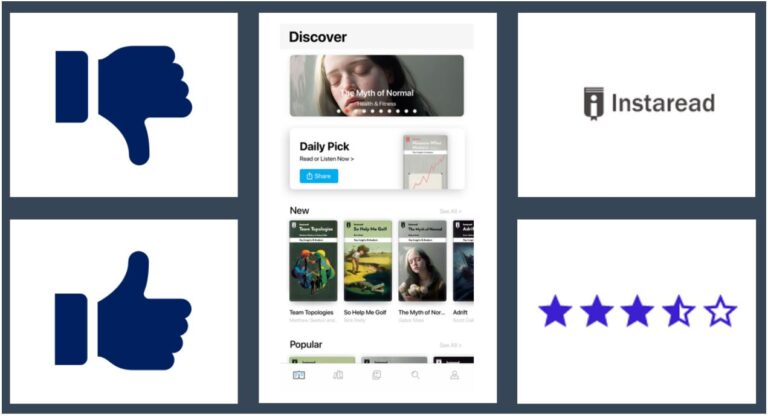Complete Guide to ‘I want to start a business but have no ideas’ + 61 useful ideas

I want to start a business but have no ideas
Haven’t we all heard that, mostly from ourselves!
If you’re looking to start a small business but are feeling overwhelmed by the number of options available, don’t worry! It’s natural to feel hesitant when it comes to investing your time and money into a new venture, especially if you’re currently working a 9-to-5 job and have limited capital to invest.
However, the good news is that there are countless opportunities out there for people with a variety of skills and goals.

To help you narrow down your options and find a business idea that aligns with your talents and passions, we’ve compiled a list of potential small business ideas. These ideas are meant to serve as a starting point and inspiration, and can be modified or adapted to suit your specific goals and needs.
Whether you’re interested in starting a service-based business, selling physical or digital products, or offering a combination of both, there’s bound to be an idea on this list that resonates with you.
So don’t be afraid to take a step into your first business and explore your options! With the right idea, a bit of hard work, and a bit of luck, you can turn your entrepreneurial journey into a reality in 2023.
Should you start a business – why & why not?

Why start a business?
Starting a business can be a great way to take control of your life, become your own boss and make money.
As an entrepreneur, you’ll have the opportunity to build something from the ground up: create your own company with its unique culture and mission, pursue goals that truly reflect your passions and values, and increase your income potential.
By taking ownership of your work and becoming a driving force in your industry, you’ll have the ability to make positive changes in your life and the lives of others.
Why might you choose not to start a business?
There are many potential risks and challenges associated with starting a business, including uncertainty around revenue and profitability, the need for upfront capital, and the pressure to constantly innovate and adapt.
Additionally, running a business can be very demanding and stressful – you’ll be responsible for managing employees, balancing financials and forecasting growth, as well as dealing with a wide range of other issues that come up on a daily basis.
If you’re not fully committed to your business idea and willing to work hard every day to make it successful you’ll probably not make enough money to sustain. You may be better off pursuing another path. But if you have the drive, skills, and passion to keep going, starting a business could be the right choice for you.
Choosing the right business for you

Choosing the right business idea is about finding a good balance between the three factors
- What are you good at
- What can make money
- What you won’t quit
Let’s dive a bit deeper on each.
What are you good at?
Make a list of your skills, talents, and areas of expertise. These are the things that you do really well – perhaps they come naturally to you or you’ve spent years developing your abilities.

Consider what kinds of businesses would be a good match for your skills, such as consulting, product development, web design, or marketing.
Here’s a list of questions that can help you to find out what your natural and acquired strengths are.
What do you enjoy doing in your free time?
Identifying activities that you enjoy in your free time can help you identify your natural interests and passions. This can give you insight into what you might be naturally good at or what you might enjoy doing as a career.
What tasks or activities do you find effortless or easy to do?
Identifying tasks or activities that come easily to you can help you identify your natural strengths. These might be things that you can do quickly or with minimal effort, or things that you find enjoyable and engaging.
What have you received compliments or recognition for in the past?
Reflecting on past instances where you have received compliments or recognition can help you identify areas where you excel. This could be in your personal or professional life, and could be related to skills, knowledge, or personal qualities.
What are you known for among your friends, family, or colleagues?
Asking others what they think you are known for can provide valuable insight into your strengths. Your friends, family, and colleagues may notice qualities or skills in you that you take for granted or may not even realize you possess.
What skills or knowledge have you acquired through education or experience that you excel at?
Reflecting on the skills and knowledge you have acquired through education or experience can help you identify areas where you have developed expertise. These might be things that you have studied formally or informally, or things that you have learned through practice or experience.
What goals or projects have you successfully completed in the past?
Thinking about goals or projects that you have successfully completed in the past can help you identify your strengths in terms of planning, organization, and execution. It can also help you identify areas where you excel in terms of problem-solving or decision-making.
What are you passionate about or deeply interested in?
Identifying your passions or areas of deep interest can help you identify your natural strengths and skills. Your passions and interests might also provide clues about potential career paths or areas where you might excel.
When faced with a challenge, what are the strategies or approaches you tend to use?
Reflecting on the strategies or approaches you tend to use when faced with a challenge can help you identify your natural problem-solving style or areas of strength. For example, do you tend to approach problems in a logical, analytical way, or do you tend to think more creatively and intuitively?
What do you feel confident and capable of doing?
Identifying activities or tasks that you feel confident and capable of doing can help you identify your strengths and areas of expertise. This might include things that you feel comfortable doing or things that you feel you excel at.
What do you feel proud of in your personal or professional life?
Thinking about things that you feel proud of in your personal or professional life can help you identify your strengths and areas of accomplishment.
This might include things that you have achieved through hard work and dedication, or things that you feel particularly proud of because they required overcoming challenges or obstacles.
Once you have gone through and identified a list of potential strengths, time to put them to a test.
What business opportunities does your strengths map to?

Starting a business can be a rewarding and exciting venture, and identifying your strengths can be a key factor in finding success. Here are a few examples of different strengths and the types of businesses they may be valuable for:
- Strong problem-solving skills: A business that requires creative problem-solving, such as a consulting firm or a tech startup, may benefit from an entrepreneur with these skills.
- Excellent communication and networking abilities: A business that relies on building relationships and persuading others, such as a marketing agency or a sales organization, may benefit from an entrepreneur with strong communication and networking skills.
- Creativity and innovation: A business that requires originality and out-of-the-box thinking, such as an advertising firm or a design studio, may benefit from an entrepreneur with these strengths.
- Attention to detail and organization: A business that requires accuracy and efficiency, such as a financial planning firm or a healthcare organization, may benefit from an entrepreneur with strong attention to detail and organizational skills.
- Leadership and management skills: A business that requires the ability to inspire and guide others, such as a management consulting firm or an education organization, may benefit from an entrepreneur with strong leadership and management skills.
- Strong analytical skills: Industries such as data analysis, research, and finance may benefit from individuals with strong analytical skills, as these fields often require the ability to interpret and make sense of large amounts of data.
- Excellent writing and editing abilities: Industries such as journalism, publishing, and marketing may value strong writing and editing skills, as these roles often involve producing high-quality written content.
- Strong interpersonal skills: Industries such as customer service, sales, and education may benefit from individuals with excellent interpersonal skills, as these roles often involve building relationships and interacting with others.
- Team-oriented mindset: Industries such as project management, event planning, and sports may value individuals with a team-oriented mindset, as these roles often involve working with others to achieve a common goal.
- Adaptability and flexibility: Industries such as consulting, freelance work, and startups may benefit from individuals who are adaptable and flexible, as these fields often require the ability to pivot and adapt to changing circumstances.
By identifying your strengths and considering the types of businesses that align with them, you can set yourself up for success as an entrepreneur and create a venture that is both fulfilling and challenging.
A list of potential business ideas presented at the end of this article. Please use this for inspiration only, the world is big and opportunities are unlimited.
Can your business ideas actually make money?

This is one of the most important questions that you need to consider before starting any business. Although there are a number of different factors that can affect profitability, some key considerations include the market demand for your product or service, the cost of production and distribution, and your target audience’s willingness to pay.
To start assessing the potential profitability of your chosen business idea, you may want to consider conducting market research and competitor analysis. This can help you estimate whether there is sufficient demand in your target market to make your business viable, as well as identify any potential threats or opportunities that could affect your success.
Other important considerations include things like the startup costs associated with starting your business, as well as projected expenses such as marketing and advertising, regulatory requirements, and legal considerations like intellectual property protection.
Ultimately, the key to assessing profitability of your business idea is to carefully weigh all these different factors and consider how they your bottom line. Armed with this information, you can make a more informed decision about whether your idea has real potential for success or not.
Here are a few questions that can help you decide if you idea can actually make money.
– Is there a sufficient market demand for the product or service?
– What are the startup costs associated with the business?
– What are the projected expenses such as marketing, advertising and regulatory requirements?
– Are there any legal considerations that need to be taken into account before starting up this business?
– How does my target audience perceive my product or service and what is their willingness to pay for it?
– Have I conducted competitor analysis to identify potential threats or opportunities in this particular industry sector?
– Is there a unique selling proposition for my offering that sets it apart from other competitors in the marketplace?
Through the process of filtering for the ‘money’ question, hopefully you’ve arrived at or two ideas. If you have have more than that, prioritize based on the revenue size.
The biggest potential to make money, the earlier the better.
Is it a business you won’t quit?

Running your own business might sound glamourous, but it isn’t. Once the shine wears off, you’ll quickly find that there are many challenges and obstacles to overcome.
It takes a lot of hard work, grit, and determination to succeed. Before starting your own business, it is crucial to identify any areas you are unwilling to compromise on, such as your goals and values.
Most business fail, especially the ‘first time’ business. So it is important to think carefully about whether you are willing to risk your time and other resources on a venture that may or may not succeed.
This requires some self-awareness and an honest assessment of your own strengths, weaknesses, and limitations.
Imagine how your life looks like a year after launching your business. Is this something you can see yourself committing to long-term? Are you willing to make the necessary sacrifices, such as working long hours, giving up free time and weekends, etc.?
Ultimately, you need to be honest with yourself about whether you are truly committed to your business idea, or whether you are just pursuing it for the short-term. If you can envision yourself sticking with your business through thick and thin, then this may be a good idea worth pursuing. Otherwise, it may be wise to reconsider!
Write a Business Plan

Good business ideas aren’t rare, good execution is. Many businesses start out with great ideas, but struggle to execute them effectively. To be successful, it is important to have a clear business plan outlining goals and strategies that can be used to achieve those goals.
When making a plan, think like a business owner and be honest with yourself. You may be excited about finding that one perfect business idea and get carried away. However, it’s important to be realistic and consider the timeline, potential risks, costs, and challenges associated with your business.
The plan for your business venture should cover the key areas including
- Start up costs & running costs
- How much time/effort will be needed from you
- Who are your paying customers, family members don’t count
- Competitive analysis: Are you too late, is there still room for more
- Do you see examples of other entrepreneurs succeeding in the same type of business?
- When do you expect to make profit
- What happens in the worst case scenario
Assess the risks, and build some contingency

A new business idea is exciting but can make you forget all the risks that come with being a business owner.
Many businesses fail, especially small businesses within the first few years. It is important to identify any potential risks early on and develop mitigation strategies so that they do not affect your bottom line.
This is one critical factor that many first time business owners skip over.
As you build your business plan, think about potential risks and how you will mitigate them.
For example, are there any legal or regulatory requirements that you will need to fulfill?
Are there any key competitors who could pose a major threat to your success, and how will you deal with them?
Are there any natural disasters or economic downturns that could affect your revenue?
Embrace failure and continue learning

Starting & executing on your own business ideas can be an exciting phase of your life. But almost all business can be a challenging and risky endeavors, especially if it is your first one.
It is important to be open to the possibility of failure and to use it as an opportunity to learn and improve. While no one wants to fail, it is an inevitable part of the entrepreneurial process and can be a valuable source of learning and growth.
By embracing failure, you can gain valuable insights into what works and what doesn’t, and you can use this knowledge to improve your business and increase your chances of success in the future.
To stay motivated and continue learning and growing as an entrepreneur, it is important to set clear goals and regularly assess your progress towards achieving them.
Surrounding yourself with supportive people who can provide guidance and encouragement can also be helpful. Additionally, seeking out opportunities to learn and grow, such as through networking events, workshops, or mentorship programs, can help you stay motivated and continue to develop as an entrepreneur.
It is also important to celebrate your achievements and successes along the way, as this can help you maintain a positive outlook and stay motivated to continue working towards your goals.
Building a successful business takes time and persistence, so be patient and stay committed to your vision. Overall, the key to success as an entrepreneur is to be open to learning, to stay motivated, and to persevere through challenges and setbacks.
Wrap Up
Starting a business can be a daunting task, but it’s an exciting endeavor that can reap great rewards. To create a successful venture, you will need to plan thoroughly, assess potential risks and challenges, and be willing to embrace failure as a learning opportunity.

Additionally, it is important to stay motivated and persistent, surround yourself with supportive people who can provide guidance and encouragement, and continue to learn and grow as an entrepreneur. With these strategies and a strong commitment, you can build a thriving, successful business.
Frequently Asked Questions
Where to find new business ideas?
There are many different sources of new business ideas, including industry trends and market research, observations from your own experience and expertise, input from others, and inspiration from existing businesses or successful entrepreneurs.
You can also seek out opportunities to network with other business owners, attend workshops or seminars focused on entrepreneurship, or participate in mentorship programs to get feedback and guidance from more experienced entrepreneurs.
Ultimately, the key is to keep your mind open and be willing to explore new possibilities.
If the above didn’t help, use Google! There are a million ideas there!
How do I find the right business model for my business startup?
There is no one-size-fits-all answer to this question, as there are many different factors to consider when choosing a business model for your startup. Some key considerations include the type of industry or market you are entering, your target customers and their needs, and your own personal skills and experience.

Another important factor is your startup’s financial situation, including the amount of capital you have to invest, the cost of starting your business, and the potential revenue streams you can generate. Other considerations may include regulatory requirements or other legal considerations that are specific to your business sector.
I don’t know any marketing strategy, can I still do it?
Yes, you can still start a business even if you lack marketing experience or knowledge. There are many different strategies and tools that you can use to promote and grow your business, including social media marketing, content marketing, paid advertising, email marketing, influencer marketing, and more.
If you are new to marketing, it is important to start by becoming familiar with the different strategies and tools available, as well as researching best practices and examples of successful campaigns.

Additionally, you may want to seek out mentorship or guidance from more experienced marketers in order to learn from their experiences and get their insights on the best ways to approach your marketing efforts.
With these strategies and a willingness to learn and adapt, you can successfully promote your business and grow your customer base.
Should I go for an online business or a more traditional business?

Online businesses and traditional brick-and-mortar businesses both have their advantages and disadvantages, so there is no right or wrong answer to this question.
For example, online businesses typically have lower overhead costs and are easier to start, but they may be less visible or accessible than a traditional business.
On the other hand, traditional businesses may offer more stability and security, but they can be more expensive to start and operate, may have higher overhead costs, and may be more susceptible to changes in the economic climate or market conditions.
Ultimately, your decision should depend on your personal preferences, goals, and financial situation. Consider your own strengths and weaknesses as an entrepreneur, the resources available to you, and the needs of your target customers to help guide you in your decision.
Whatever option you choose, it is important to be proactive and strategic about your business planning, marketing efforts, and other key aspects of your startup to ensure its success. Good luck!
Business Ideas for 2023 (no more excuses for I want to start a business but have no ideas)

Each of these ideas need more research from you. Use this list for inspiration, your dream business may not be on this list.
- Blogging: Starting a blog can be a low-cost way to share your ideas and expertise with a wide audience.
- Social media consulting: If you have a knack for social media and helping businesses grow their online presence, you could offer social media consulting services.
- Virtual assistant: As a virtual assistant, you can offer a range of services such as scheduling, email management, and data entry to businesses and entrepreneurs.
- Freelance writing: If you have a way with words, you could offer freelance writing services to businesses in need of content for their websites or marketing materials.
- Graphic design: If you have design skills, you could offer graphic design services to businesses in need of logos, business cards, and other marketing materials.
- Event planning: If you have a talent for organizing events, you could start an event planning business to help businesses and individuals plan and execute events.
- Personalized meal planning: If you have a passion for cooking and nutrition, you could offer personalized meal planning services to help clients meet their health and wellness goals.
- Pet sitting: If you love animals, you could start a pet sitting business to care for pets while their owners are away.
- Landscaping: If you have a green thumb, you could start a landscaping business to help homeowners and businesses beautify their outdoor spaces.
- Handyman services: If you have a knack for fixing things, you could offer handyman services to help homeowners and businesses with home repairs and maintenance.
- Personal styling: If you have an eye for fashion, you could start a personal styling business to help clients build and maintain a cohesive wardrobe.
- Home organization: If you have a talent for organization, you could start a home organization business to help clients declutter and optimize their living spaces.
- Personal training: If you have a background in fitness, you could offer personal training services to help clients meet their fitness goals.
- Etsy shop: If you have a talent for crafting, you could start an Etsy shop to sell handmade or unique products.
- Car washing: If you have a reliable car and a desire to work outdoors, you could start a car washing business to serve your community.
- Lawn care: If you have a lawn mower and a bit of green space, you could start a lawn care business to help homeowners and businesses maintain their lawns.
- Personal chef: If you have culinary skills, you could start a personal chef business to prepare meals for individuals or families.
- Housekeeping: If you have cleaning skills and attention to detail, you could start a housekeeping business to help homeowners and businesses maintain clean and organized spaces.
- Photography: If you have a camera and an eye for composition, you could start a photography business to capture special events or create beautiful images for businesses and individuals.
- Transcription: If you have excellent typing skills and attention to detail, you could offer transcription services to businesses and individuals in need of written records of meetings, interviews, and more.
- Yoga instruction: If you are certified in yoga and have a passion for teaching, you could start a yoga instruction business to help clients improve their physical and mental well-being.
- Food delivery: If you have a reliable vehicle and a passion for food, you could start a food delivery business to help restaurants and other food businesses reach customers.
- Personal shopping: If you have a knack for finding great deals and a love of shopping, you could start a personal shopping business to help clients find and purchase the products they need.
- Errand running: If you have a reliable vehicle and enjoy running errands, you could start an errand running business to help busy individuals and families with tasks such as grocery shopping and laundry.
- Home cleaning: If you have cleaning skills and attention to detail, you could start a home cleaning business to help homeowners and businesses maintain clean and organized spaces.
- Personal finance consulting: If you have a background in finance and a passion for helping others, you could start a personal finance consulting business to help clients make smart financial decisions.
- Pet grooming: If you love animals and have a knack for grooming, you could start a pet grooming business to help clients keep their pets looking and feeling their best.
- Personal branding: If you have a talent for helping individuals and businesses build and maintain a strong personal brand, you could start a personal branding business.
- Home staging: If you have an eye for design and a talent for creating visually appealing spaces, you could start a home staging business to help clients prepare their homes for sale.
- Personal organizing: If you have a talent for organization and helping others declutter and optimize their living spaces, you could start a personal organizing business.
- House painting: If you have experience in painting and a desire to work outdoors, you could start a house painting business to help homeowners and businesses update their spaces.
- Personalized nutrition planning: If you have a background in nutrition and a passion for helping others, you could start a personalized nutrition planning business to help clients meet their health and wellness goals.
- Personal styling: If you have an eye for fashion and a desire to help others build and maintain a cohesive wardrobe, you could start a personal styling business.
- Personal training: If you have a background in fitness and a passion for helping others, you could start a personal training business to help clients meet their fitness goals.
- Home inspection: If you have experience in construction or home maintenance, you could start a home inspection business to help homeowners and buyers identify potential issues with a property.
Online business ideas for 2023
Use services like Fiver / Upwork for inspiration. The list of business you can start/run online is just to get your thinking started.
36- E-commerce store selling unique or niche products
This business idea involves creating an online store that sells products that are difficult to find in mainstream retail outlets. By offering specialized or hard-to-find items, you can differentiate your store from the competition and potentially tap into a niche market.
37 – Virtual event planning and management
With more companies opting for virtual events due to the pandemic, this business idea involves helping clients plan and execute successful virtual conferences, meetings, or other events. This can include tasks such as finding speakers, arranging logistics, and promoting the event.
38- Online education or training platform
This business idea involves creating a website or app that offers educational or training content to users. This could be in the form of video courses, live workshops, or written materials on a variety of subjects.
39- Social media management agency
This business idea involves helping businesses and individuals effectively manage their social media presence. This can include tasks such as creating content, scheduling posts, and engaging with followers.
40- Online consulting or coaching services
This business idea involves offering personalized consulting or coaching services to clients online. This could be in the form of one-on-one sessions or group workshops on a variety of topics, such as business strategy, personal development, or health and wellness.
41- Resume writing / Interview coaching
If you have a knack for writing resumes, you could start a resume writing service to help job seekers build strong applications. Interview coaches are also more in demand than ever before.
42- Affiliate marketing website
This business idea involves creating a website that promotes and earns commissions from other companies’ products. This can be done by writing reviews, creating comparison guides, or featuring products in blog posts or social media posts.
43- Online therapy
If you are a licensed therapist, you could offer online therapy services to clients in need of support and guidance.
44- Website design
If you have web design skills, you could start a website design business to help businesses create professional and effective websites.
45- Dropshipping store
This business idea involves creating an e-commerce store that sells products without actually holding any inventory. Instead, the store partners with a supplier who handles the storage and shipping of the products.
46- App development
This business idea involves creating and selling mobile or desktop apps that solve a specific problem or meet a specific need. This can be done through in-app purchases or by charging users a one-time or subscription fee.
47- Online tutoring or teaching services
This business idea involves offering one-on-one or group tutoring or teaching services to students online. This can be done through video calls or other virtual communication methods and can cover a wide range of subjects, from traditional academic subjects to specialized skills or hobbies.
48- Virtual interior design or home staging services
This business idea involves helping clients design or stage their homes remotely, using online tools and communication methods. This can include creating floor plans, selecting furniture and decor, and providing styling advice.
49- Online therapy or counseling services
This business idea involves offering mental health services to clients online, through video calls or other virtual communication methods. This can include individual or group therapy, as well as specialized services such as couples therapy or family therapy.
50- Graphic design or web development services
This business idea involves offering design or development services to clients, either on a project-by-project basis or through ongoing support agreements. This can include tasks such as creating logos, designing websites, or developing marketing materials.
51- Online subscription box service
This business idea involves creating a service that delivers a curated selection of products to customers on a regular basis, such as monthly or quarterly. These products can be related to a specific theme or interest and can be physical or digital in nature.
52- Stock or real estate investing education platform
This business idea involves creating a platform that teaches users how to invest in stocks or real estate. This can be done through online courses, live workshops, or other educational materials, and may also include resources such as tools or software for analyzing investments.
53- Virtual personal assistant or concierge service
This business idea involves offering personal assistant or concierge services to clients remotely, using online communication methods. This can include tasks such as scheduling appointments, making travel arrangements, or managing email and other administrative tasks.
54- Online meal delivery or meal prep service
This business idea involves creating a service that delivers pre-prepared or fully cooked meals to customers’ homes. This can include a variety of options, such as healthy meals, gourmet meals, or meals that cater to specific dietary restrictions.
55- Personalized nutrition or wellness coaching
This business idea involves offering personalized nutrition or wellness coaching to clients online. This can include creating meal plans, providing guidance on healthy lifestyle habits, or offering support for specific health goals.
56- Online legal or financial consulting services
This business idea involves offering legal or financial consulting services to clients online. This can include tasks such as reviewing contracts, offering financial planning advice, or providing guidance on legal issues.
57- Social media influencer or content creator
This business idea involves creating and promoting content on social media platforms in order to build an engaged audience and monetize through sponsored content, affiliate marketing, or other methods.
58- Personalized fitness or exercise training platform
This business idea involves creating a platform that offers personalized fitness or exercise training to users. This can be done through online courses, live virtual training sessions, or other educational materials and may also include tools or software for tracking progress and goal-setting.
59- Online language learning or translation services
This business idea involves offering language learning or translation services to clients online. This can include one-on-one or group classes, as well as translation services for written materials or audio recordings.
60- Ebook publishing
If you have a knack for writing, you could write and self-publish an ebook to sell on platforms like Amazon.
61- Virtual bookkeeping
If you have experience in bookkeeping, you could offer virtual bookkeeping services to businesses in need of help managing their finances.
I personally use affiliate marketing along with multiple SEO strategies, here’s an example of a post about Headway app that gets a lot of affiliate clicks.
More home business ideas here





